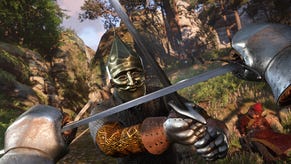NASA banking on MMO longevity
For its attempt to promote science in games.
Back in January, US space agency NASA announced its intention to put an educational MMO into development, as reported by GamesIndustry.biz.
In an interview with GameSpot, NASA project lead Dr Daniel Laughlin has shed some light on the decision to move into massively multiplayer gaming, instead of more traditional (and cheaper) traditional games development, saying the game's long life-spans were key.
"The life span partly is an issue," said Laughlin. "Even a really good [traditional] title in a couple of months is going to be stale, and you're going to find it on the discount rack. The MMOG comes with that built in, as long as you can keep expanding, updating, and putting in new material, it can stay fresh. Everquest turned nine this year, and there are still people playing Everquest. Civilization II came out on consoles around 1998, and there's nobody playing that any more."
"Another element to that is that while you do get communities built up around stand-alone games, the vibrancy of the MMO community seems to be stronger to me, and we are looking particularly for communities to grow up around this," he added.
Development of NASA's MMO has not yet started, nor has a developer been named yet. But it has received numerous pitches and expressions of interest.
The aim of the game, Laughlin said, is broadly educational, to engage more people with science & technology subjects, although it will be intended to be played in leisure time, rather than as a purely educational tool. "The reality is that any given kid has 15 times more leisure time than they've got time spent on any one subject in school," he said. "So the idea would be to capture some of that time that we know kids and adults are spending in games and on recreational activities."
The game has been compared to America's Army - the controversial FPS that the US Army used, quite successfully, for recruitment. However, Laughlin said the project would have to be funded very differently. "The Army paid for America's Army directly, and there are differing reports on what that cost, but from what I understand, it was upward of USD 20 million if you include development and the funding they put in to running it. There was never a realistic possibility that we were going to get that much funding from NASA to do this," he said.
Instead, NASA will contribute USD 2 million itself, with the eventual developer providing its own funding and business model.
Laughlin also pointed out that the game is not a direct recruitment tool the way America's Army is, but it could have direct benefits for the space programme. "NASA isn't looking directly to recruit... One of the possibilities that has helped us internally is that we can eventually put real challenges that NASA faces into a game environment and engage thousands or tens of thousands of people on finding solutions, instead of just a couple of people working in a lab in isolation."
We're sort of excited by the idea of contributing to the future of humanity in space by playing a game. We'll have to wait, though: with no developer or release date as yet, this game is still just a twinkle in the space agency's eye.








